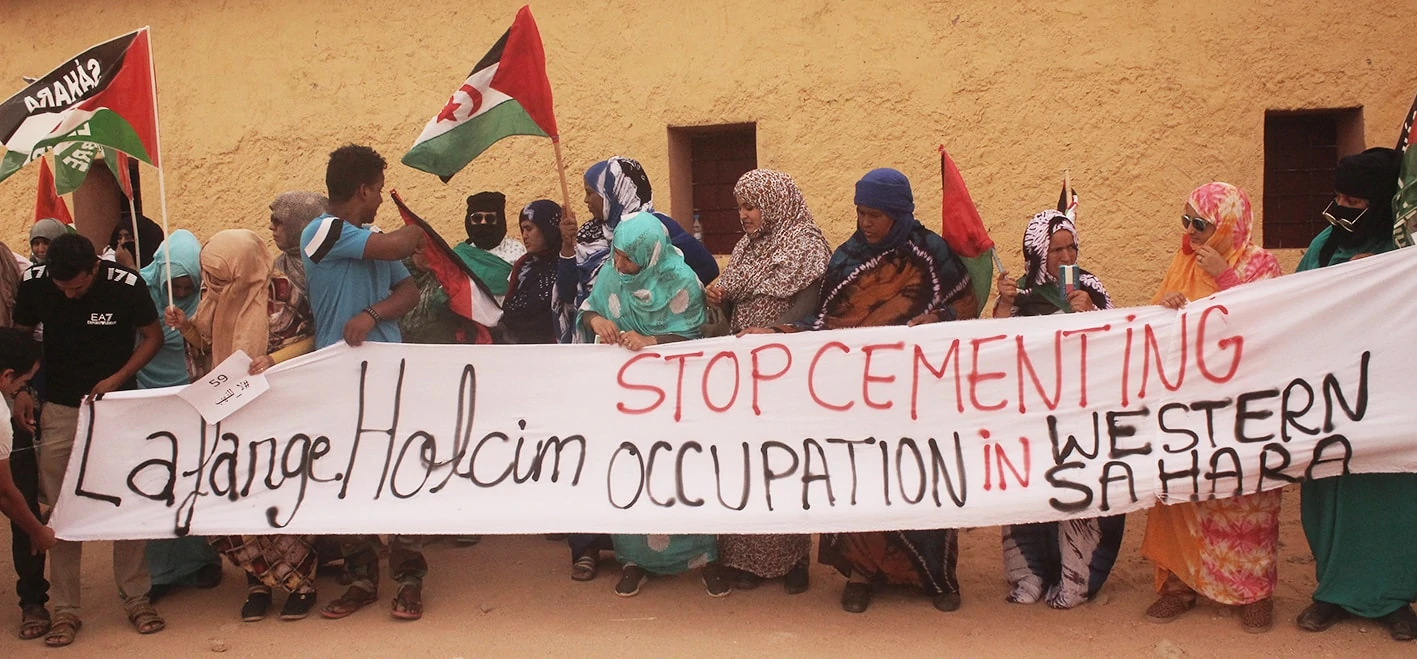Exploitation of resources in the occupied territory
The occupied part of Western Sahara is rich in resources and opportunities for economic activities. Numerous foreign companies benefit from this. However, in order to be allowed to use resources in a non-self-governing territory such as Western Sahara, the affected population must first give its consent. The Sahrawis, represented by their internationally recognized representative body Frente Polisario, have not given this consent. Swiss companies are also involved.

While the Sahrauis in the refugee camps are dependent on international aid supplies, which are becoming increasingly scarce, international companies and the Moroccan State from the occupation. The coastal strip under Moroccan occupation is rich in resources. Alone the annual yield from phosphate mining was 2022 estimated over 300 million USD, while Algeria received from the UN Refugee Agency (UNHCR). 22 Million, half as much as needed, had at its disposal. From this drip also hang the Sahrawi refugee camp in western Algeria. Phosphate is used to produce fertilizer, an important product in agriculture worldwide. In addition, the sea off the coast of Western Sahara is rich in fish. Foreign companies are also increasingly involved in infrastructure projects. One example is the Swiss company Holcim, whose subsidiary LafargeHolcim Maroc near the city of El Aaiun operates a cement factory. Holcim thus literally cements the occupation. Swiss companies are also repeatedly involved in the transport of fish or phosphate from the occupied territory or supply components for energy projects., so also Hitachi Energy. In addition, Volg says it still sources tomatoes from the occupied Western Sahara on a case-by-case basis and Zug-based EuroChem imported 2021 Phosphate rock from the phosphate mine in the occupied territory to a company-owned asset in Estonia.
breach of international law
The transactions between Morocco and foreign companies contradict international law. According to the UN, Western Sahara is a non-self-governing territory, and Switzerland also follows this definition. In 2002, the UN legal advisor Hans Corell examined the requirements for legally extracting resources in such a territory. He came to the conclusion that resources in a non-self-governing area may only be used with the consent of the people concerned.
Against the will of the Saharauis
Time and again, the Sahrawis speak out vehemently against the economic activities of foreign companies in Western Sahara. They also defend themselves legally and are repeatedly proven right. In recent years, the European Court of Justice has issued numerous rulings on economic agreements between Morocco and the EU and has repeatedly come to the conclusion that Morocco and Western Sahara are different territories, and that agreements on the territory of Western Sahara must be negotiated with the Sahrawis and their internationally recognized representative, the Frente Polisario.
Economy and politics lag behind jurisdiction
Despite this clear legal situation, companies make lucrative business deals with Morocco and thus contribute to maintaining the occupation situation, which is also accompanied by serious human rights violations. In addition to the resources of phosphate, fish, agricultural products, salt and sand shipped to the Canary Islands, it is large infrastructure projects in the occupied territory that are the subject of discussion. These include renewable energy projects, which are also being implemented without the consent of the Sahrawis. By awarding these lucrative deals to foreign companies, Morocco secures the support of the business community and pro-business politicians.
Argument of local economic development
Companies repeatedly argue that the local population in Western Sahara benefits from economic activities. Rather, however, it is the case that settlement policy is pursued with the promotion of the "southern provinces", as Morocco calls the Western Sahara. International law also does not refer to the "local population", but to the Sahrawi people, who have a right to self-determination and use of their resources. Since 1991, the UN has been trying to implement a referendum agreed between the parties to the conflict.
Companies withdraw
However, there are always companies that see the problems of economic activities in Western Sahara and withdraw. For example, the three largest retailers in Switzerland, Migros, Coop and Denner, have decided to stop importing agricultural products from occupied Western Sahara. This followed years of information and campaign work by various organizations. terre des hommes schweiz was also involved.

